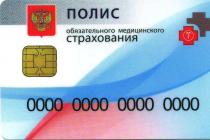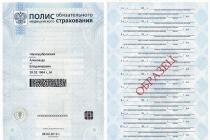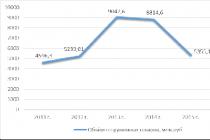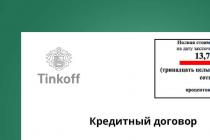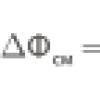When choosing a deposit program, a Promsvyazbank depositor pursues the main goal: to obtain the highest possible profit thanks to a favorable interest rate. But often such deposits limit the client’s ability to freely dispose of funds. A compromise choice in this situation would be to make a decision to activate a savings account on loyal terms.
Savings account at Promsvyazbank
Clients who want to save money and at the same time not be deprived of the opportunity to partially spend money from the deposit balance should be interested in the advantageous offer from Promsvyazbank. According to the “Profitable” account servicing agreement, the depositor can withdraw money from the balance without worrying about the threat of a reduction in the interest rate or deactivation of the account.
Peculiarities
All deposits opened with Promsvyazbank are insured up to an amount of 1.4 million Russian rubles, in accordance with the law of the Russian Federation. If several deposits are opened for one individual, then the insurance coverage applies to the total deposited amount.
Accumulation rules
Each depositor who has opened a deposit account must familiarize himself with the “Accumulation Rules”. The principle of this financial instrument is simple: part of the funds from the main cash account goes to the savings account every time a cash flow is recorded on the client’s card (replenishment of the balance or payment for goods and services).
Mechanism for crediting funds:
| Replenishment = accumulation | Purchase = accumulation |
|---|---|
| The client agrees in advance with the bank employee the desired amount or percentage, which will be transferred to the balance of the savings account after the funds are received on the card. | The client sets the desired amount or percentage that will be transferred to the NS balance when paying for each purchase. |
| Example: | Example: |
| The investor's salary = 70 thousand rubles. | Check amount = 900 rubles. |
| Of this, 15% is transferred monthly to the deposit account, i.e. 10.5 thousand rubles. | The basis is 20% of the check amount, i.e. 180 rubles will be automatically transferred to the NS balance. |
| Annual savings amount: 10.5 thousand x 12 months = 126 thousand rubles. | The more purchases paid for with a bank card, the more the accumulative amount grows. |
Having collected a sufficient amount of savings, it is recommended to withdraw from the savings account and put it into a deposit with the highest interest rate. At the same time, part of the funds can not be withdrawn from the tax system and this money can be used as an additional financial source.
Thus, the client has the opportunity to freely use personal funds without losing the favorable interest rate.
Advantages
By choosing the “Profitable” deposit program, clients are guaranteed to receive the following benefits:
- The rate is 6.25% for accounts in national currency.
- There are no restrictions: you can top up your balance with any amount throughout the entire contract period.
- Withdrawing money from your account without losing %.
- No minimum balance on NS.
- Capitalization %.
- Payment of interest once a month.
- Activation of the “Accumulation Rules” option.
Detailed advice on the advantages and opportunities can be obtained at the Promsvyazbank office. The nearest branch can be easily found on the online map.
Interest rates
The following interest rate conditions currently apply:
How to open?
A savings account can be opened in two ways: by visiting a bank branch or submitting documents remotely. The list of documents required to activate the account can be found
| Submitting an application at the office | Submitting an application via online banking |
|---|---|
| Procedure: | |
| 1. Select the nearest stationary branch of Promsvyazbank and familiarize yourself with the work schedule. | 1. Persons who have not previously entered into a DKO with the bank must contact a bank branch to sign a cooperation agreement. |
| 2. Come to the office with an identification document. | 2. Open a personal Internet banking account. |
| 3. Familiarize yourself with the rules for comprehensive services for individuals and sign the corresponding document. | 3. From the list of sections, select “Cards and accounts”. |
| 4. Check the correctness of the data entered by the operator. | 4. Familiarize yourself with the list of available savings accounts to choose the best one. |
| 5. Add a sum of money to the NS balance in a convenient way: online transfer of funds from a personal card or in cash at the cash desk. | 5. Top up your NS balance by transferring money from your main bank account. |
| 6. Receive a document confirming the activation of the savings account. | 6. Confirm the action. |
| 7. Contact the nearest bank office to obtain a document confirming the activation of the savings account. | |
Thanks to the “Profitable” deposit account, depositors can easily replenish the account balance throughout the entire period of the agreement, as well as spend accumulated funds without losing the favorable interest rate.
Search
News
Special offers
Calculator
All about deposits
Deposit insurance
Contribution (deposit)- the amount of funds that the bank accepts from the client for a certain or indefinite period. According to the Civil Code, the bank undertakes to return the deposit amount and pay interest on it under the conditions and in the manner prescribed by the agreement. Also, a citizen has the right to withdraw funds from the bank at any time. A Russian bank may refuse to open a deposit for a private individual if the citizen provides false information about himself, as well as if the person is suspected of violating the law on the laundering of proceeds from crime (115-FZ). To conclude an agreement on opening a deposit, it is enough to present your passport.
Interest capitalization
Capitalization of interest - adding interest to the deposit amount allows for the subsequent calculation of interest on interest. Calculation of interest on interest, used in some types of bank deposits, or in the case of debt, interest is included in the principal amount and interest is also calculated on it. Interest on a capitalized deposit can be accrued daily, monthly, quarterly and annually. If they are not paid, they are added to the deposit amount. And in the next period interest will be accrued on a larger amount.
Interest payment
Interest on the amount of the bank deposit is paid by the bank in the amount determined by the bank deposit agreement. If the bank deposit agreement does not stipulate the amount of interest to be paid, then the bank is obliged to pay interest in the amount of the refinancing rate in effect on the date of payment (Article 838 of the Civil Code of the Russian Federation).
It should be noted that the interest rate specified in the bank deposit agreement is annual, i.e., the amount of your deposit will increase by so much per year.
Interest on the deposit can be paid daily, monthly, quarterly, annually and at the end of the term.
Deposit insurance
Deposit insurance implies that in the event of a bank bankruptcy, an individual receives, in whole or in part, the funds invested in this bank in the shortest possible time. Payments are made by special funds created at the expense of banks and/or the state.
According to the law of the Russian Federation, if a bank is a participant in the deposit insurance system, then in the event of revocation of the bank’s banking license, the state guarantees individuals a return of up to 1,400,000 rubles.
Taxation of deposits
With regard to income in the form of interest received on deposits in banks, the tax base is determined as the excess of the amount of interest accrued in accordance with the terms of the agreement over the amount of interest calculated on ruble deposits based on the refinancing rate of the Central Bank of the Russian Federation, increased by five percentage points , valid during the period for which the specified interest is accrued, and for deposits in foreign currency based on 9 percent per annum, unless otherwise provided by this chapter. This rule does not apply if the deposit is in rubles, at the time of opening the deposit the refinancing rate increased by five percentage points exceeded the deposit rate, the deposit rate did not change and no more than 3 years have passed since the last excess of the deposit rate over the refinancing rate increased by five percentage points. x years. If all these conditions are met, tax on deposit income is not levied.
The tax rate on interest income on deposits for persons who are tax residents of the Russian Federation and receive such income is 35%; for non-residents (actually staying on the territory of the Russian Federation for less than 183 days in a calendar year) - 30%.
Types of deposits
Time deposit- a bank deposit for which a certain storage period is established (from several months to several years). Such a deposit is kept in the bank in the amount of the deposited amount and is returned to the depositor in full along with interest.
Making a term deposit:
The deposit of funds is confirmed by a savings book, savings or deposit certificate, or other document issued by the bank to the depositor that meets the requirements prescribed for such documents by law.
The most commonly used agreement is to open a deposit and deposit funds into the client’s deposit account. This agreement specifies the date of opening the deposit, information about the depositor, the amount deposited, currency, deposit period, interest rate and other conditions.
Time deposits can be divided into separate subtypes according to their purpose:
- savings deposit- for such a deposit, replenishment and partial withdrawal operations are prohibited. Savings deposits typically have the highest rates.
- savings deposits designed for those who would like to replenish their deposit during the term of the contract. They are intended for those who would like to save up some large amount (for example, for an expensive purchase).
- settlement deposit allows the client to maintain, to one degree or another, control over his funds, manage his savings, making incoming or outgoing transactions. Another name for this type of deposit is universal deposits.
Deposit on demand- a bank deposit returned to the depositor in whole or in part upon his first request. Withdrawal of money can be done in cash, by bank transfer or by issuing a check. Funds received by the bank from the depositor are stored in a current or checking account.
Special deposits- these types of deposits are offered, as a rule, to a narrower group of people. For example, banks can develop special products for pensioners, students, etc.
Multicurrency deposit - allows clients to simultaneously store money in different currencies (usually rubles, dollars and euros).
Such deposits are in greatest demand during sharp fluctuations in the exchange rate of the ruble against the dollar and euro. It is believed that one of the key advantages of a multicurrency deposit is the possibility of non-cash conversion of funds within the deposit without restrictions and without loss of profitability. Banks, as a rule, do not charge commissions for conversion, but the rates on such deposits are lower than on regular deposits, on average by 1-2 percentage points.
Contribution in favor of a third party- the peculiarity of a deposit in favor of a third party is that until this person decides to exercise the rights of a depositor (in other words, before he personally contacts the bank), the client who opened the deposit and entered into an agreement can also enjoy all the rights of the depositor. Typically, deposits made to a third party are replenished. However, replenishment options may be limited. If a foreign currency deposit is replenished not by the person in whose name it is opened, but directly by the citizen who initially deposited the money, then he will have to provide the bank with a notarized power of attorney on behalf of that same third party.
For deposits on third parties, upon the occurrence of an insured event, compensation is paid on a general basis. But only the person in whose name the deposit was opened can receive this compensation. Often, clients who want to deposit more than 700 thousand rubles make deposits for third parties, for example, for relatives.
Deposits via Internet banking, ATM or terminal deposits- are no different from a regular deposit. This is also a sum of money placed in a bank to earn interest income. A separate deposit account is also opened for the client, in which the deposited funds are recorded. Interest is also accrued within certain periods and savings are returned with income. The only difference is in the technology for opening a deposit and the set of documents establishing the relationship between the parties. An essential feature of a deposit through remote access channels is an electronic digital signature (EDS) of the client and the bank, instead of signatures put personally on paper at the time of concluding the agreement.

The Deposit Insurance Agency was created in January 2004 on the basis of the Federal Law of December 23, 2003 No. 177-FZ “On the insurance of individual deposits in banks of the Russian Federation.”
In order to ensure the functioning of the deposit insurance system, the Agency pays deposit compensation to depositors upon the occurrence of an insured event; maintains a register of banks participating in the deposit insurance system; controls the formation of a deposit insurance fund, including through bank contributions; manages the funds of the deposit insurance fund.
The number of participating banks is 762 (data as of August 17, 2018), insured events - 454 (data as of August 2, 2018).
With the adoption of the Federal Law of August 20, 2004 No. 121-FZ “On Amendments to the Federal Law “On the Insolvency (Bankruptcy) of Credit Institutions” and the recognition as invalid of certain legislative acts (provisions of legislative acts) of the Russian Federation" the institution of corporate bankruptcy was introduced in Russia manager of insolvent banks, whose functions are assigned to the Agency. The number of liquidation procedures in relation to banks is 642, the number of completed liquidation procedures is 307.
On October 27, 2008, Federal Law No. 175-F3 “On additional measures to strengthen the stability of the banking system in the period until December 31, 2014” was adopted, according to which the Agency was also given the functions of financial rehabilitation of banks. The number of bank rehabilitation projects in which the Agency took part is 23.
In accordance with the Federal Law of December 28, 2013 No. 422-FZ “On guaranteeing the rights of insured persons in the compulsory pension insurance system of the Russian Federation when forming and investing pension savings, establishing and making payments from pension savings”, which came into force on On January 1, 2014, a system was created to guarantee the rights of insured persons in the compulsory pension insurance system.
To ensure the functioning of the system for guaranteeing the rights of insured persons, the Agency maintains a register of non-state pension funds - participants in the guarantee system; forms and invests funds from the pension savings guarantee fund; controls the completeness and timeliness of receipt of guarantee contributions to the pension savings guarantee fund; upon the occurrence of a guarantee event, it will pay guarantee compensation to the participating fund or the Pension Fund of the Russian Federation.
Currently, 38 non-state pension funds are participants in the system of guaranteeing the rights of insured persons.
Expert advice
The Expert Analytical Council under the State Corporation “Deposit Insurance Agency” is a permanent public body, which includes representatives of banks, leading banking associations and the scientific community.
The main objectives of the Council are to provide expert, analytical and methodological assistance to the DIA Group in solving the entire range of problems related to ensuring the functioning of the deposit insurance system and the Agency’s activities as a corporate bankruptcy trustee in bankruptcy and liquidation of credit institutions.
Council meetings are held quarterly.
The creation of a system of compulsory insurance of bank deposits of the population (CDI) is a special state program implemented in accordance with the Federal Law “On Insurance of Individuals’ Deposits in Banks of the Russian Federation.”
Its main task is to protect the savings of the population placed in deposits and accounts in Russian banks on the territory of the Russian Federation. Currently, depositors of 762 (data as of August 17, 2018) of the bank participating in the system are protected by CERs, including:
- operating banks licensed to work with individuals - 431;
- operating credit institutions that previously accepted deposits, but lost the right to attract funds from individuals - 4;
- banks in the process of liquidation - 327.
Protecting the financial interests of citizens is one of the important social tasks of the state. Deposit insurance systems operate in more than 100 countries around the world, including all member states of the European Community, the USA, Japan, Brazil, and our closest neighbors - Azerbaijan, Armenia, Belarus, Kazakhstan, and Ukraine.
Operating principles of the SSV
The deposit insurance system works as follows. If an insured event occurs in relation to a bank (its license to carry out banking operations is revoked), its depositor is promptly paid monetary compensation: compensation for deposits in the established amount. In case of liquidation of the bank, its settlements with the depositor in the part exceeding the specified payment are carried out later - during the liquidation procedures in the bank.
To insure deposits, the depositor does not need to conclude a separate insurance agreement: it is carried out by force of law. An organization specially created by the state, the Deposit Insurance Agency, returns the amount of his savings to the depositor for the bank, takes his place in the queue of creditors and subsequently sorts out the relationship with the bank regarding the return of the debt.
The amount of compensation in one bank cannot exceed the maximum amount of insurance compensation, even if the depositor keeps money in several accounts in this bank. However, if he has deposits in different banks, in each of them he can receive compensation up to the maximum amount.
For insured events occurring after December 29, 2014, the maximum amount of insurance compensation is 1.4 million rubles. (for earlier insured events, starting from October 2008 - 700 thousand rubles).
All funds of individuals placed with a participating bank on the basis of a bank account or bank deposit agreement are subject to insurance, with the exception of:
- funds in the accounts of lawyers and notaries, if the accounts are opened in connection with professional activities;
- bearer deposits;
- funds transferred to banks for trust management;
- deposits in foreign branches of Russian banks;
- electronic money (intended for settlements exclusively using electronic means of payment without opening a bank account);
- funds in nominal accounts (with the exception of separate nominal accounts that are opened by guardians or trustees for the benefit of wards);
- funds in collateral accounts;
- funds in escrow accounts (insurance of certain types of escrow accounts has been provided since 04/01/2015).
Reimbursement for deposits
To receive compensation for deposits, the depositor must submit an application and documents identifying the depositor to the Deposit Insurance Agency (its authorized agent bank). This can be done at any time from the date of the insured event until the completion of the bank’s liquidation, which lasts, on average, 2 years. Insurance compensation for “latecomers” will be paid in exceptional cases, for example, in case of serious illness, long-term business trip abroad, or military service.
Payment of compensation for deposits is made by the Agency (as a rule, through an authorized agent bank) in accordance with the register of the bank’s obligations to depositors, formed by the bank in respect of which the insured event occurred. Payment is made within three days from the date the depositor submits documents to the Agency (agent bank). Payments begin, as a rule, 10-14 days after the occurrence of the insured event (the preparation period is necessary to obtain information from the bank about deposits and organize settlements). Payment of compensation for deposits can be made at the request of the depositor either in cash or by transferring funds to a bank account specified by the depositor. The insurance can be paid by postal order at the place of residence of the depositor.
CER participants
Participation in the insurance system is mandatory for all banks that have the right to work with private deposits. Deposits are considered insured from the day the bank is included in the register of banks participating in the CER.
Mandatory Deposit Insurance Fund
Insurance premiums are paid by banks quarterly. From the third quarter of 2015, a mechanism for paying contributions at differentiated rates was introduced, the amounts of which are established by the Agency’s Board of Directors. The full contribution rate applied by each bank for the quarter depends on the maximum level of interest rates on deposits attracted by the bank and is 0.1 or 0.12 or 0.25 percent of the average daily deposit balances with the bank in this quarter.
Investment of the Mandatory Deposit Insurance Fund
Investment of the Fund's assets is carried out on the principles of repayment, profitability and liquidity of the acquired assets. For all state corporations, the Government of the Russian Federation establishes a general procedure and conditions for investment, as well as the procedure and mechanisms for monitoring the investment of temporarily available funds. In accordance with the established rules, the list of permitted assets for investing the Fund’s funds includes:
- government securities of the Russian Federation and constituent entities of the Russian Federation;
- Bank of Russia deposits;
- bonds of Russian issuers;
- shares of Russian issuers created in the form of OJSC;
- mortgage securities of Russian issuers;
- securities of international financial organizations admitted for placement and (or) public circulation in the Russian Federation.
It is not permitted to invest the Fund's funds in deposits and securities of Russian credit institutions.
Data on income from investing the Fund's funds are published in the Agency's annual reports.
The Fund's funds spent on insurance compensation payments may be fully or partially restored when the Agency's claims to liquidated banks are repaid during liquidation procedures. In order to ensure the financial stability of the CER, the Government of Russia has been granted the right to allocate funds from the federal budget to the Agency in the event of a shortage of funds from the Fund.
In accordance with the Federal Law of December 23, 2003 No. 177-FZ “On insurance of deposits of individuals in banks of the Russian Federation” (hereinafter referred to as the Federal Law), funds in rubles and foreign currency placed by individuals or in their favor in bank on the territory of the Russian Federation on the basis of a bank deposit agreement or a bank account agreement, including capitalized (accrued) interest on the deposit amount, including funds placed:
- in deposits (on demand and time deposits); - on bank accounts intended for receiving salaries, pensions, scholarships and social benefits, including if transactions on these accounts are made using bank cards;
- on accounts (deposits) of individual entrepreneurs opened for business activities (for insured events that occurred from January 1, 2014);
- on nominal accounts of guardians or trustees, the beneficiaries (beneficiaries) of which are the wards (for insured events occurring from December 23, 2014);
- escrow accounts opened by individuals for settlements on transactions with real estate, for the period established by Federal Law (for insured events occurring from April 2, 2015). The following funds are not insured:
- placed on bank accounts (deposits) of lawyers, notaries and other persons, if such accounts (deposits) are opened for the implementation of professional activities provided for by federal law;
- placed by individuals in bearer bank deposits, including those certified by a savings certificate and (or) bearer savings book;
- transferred by individuals to banks for trust management;
- placed on deposit in branches of banks of the Russian Federation located outside the territory of the Russian Federation;
- being electronic money;
- placed on nominal accounts, with the exception of separate nominal accounts that are opened for guardians or trustees and beneficiaries (beneficiaries) of which are wards, collateral accounts and escrow accounts, unless otherwise provided by Federal Law.
The depositor's right to receive compensation for deposits arises from the date of the insured event. An insured event is one of the following circumstances:
1) revocation (cancellation) of the bank’s license from the Bank of Russia to carry out banking operations, if the Agency’s participation plan in settling the bank’s obligations is not implemented in accordance with Federal Law of October 26, 2002 No. 127-FZ “On Insolvency (Bankruptcy)”;
2) introduction by the Bank of Russia of a moratorium on satisfying the claims of bank creditors.
Compensation for deposits in a bank in respect of which an insured event occurred is paid to the depositor in the amount of 100 percent of the amount of deposits in the bank, but not more than 1.4 million rubles (for insured events that occurred after December 29, 2014).
If a depositor has several deposits in one bank, then compensation is paid for each of the deposits in proportion to their size, but not more than 1.4 million rubles in total. This condition applies to all deposits made by a depositor (in favor of the depositor) to one bank, including deposits made in connection with the implementation of business activities provided for by federal law (with the exception of escrow accounts opened by individuals for settlements on transactions with real estate ).
Compensation under the agreement of an escrow account opened for settlements under real estate purchase and sale transactions is paid in the amount of 100 percent of the amount in the specified account at the time of the insured event, but not more than 10 million rubles. Reimbursement under the escrow account agreement is calculated and paid separately from compensation for other deposits. If the deposit is placed in foreign currency, the amount of compensation for deposits is calculated in rubles at the rate established by the Bank of Russia on the day the insured event occurred. Payment of compensation for deposits is made in rubles.
If the bank also acted as a creditor in relation to the depositor (issued a loan to the depositor), then the amount of compensation for deposits is determined based on the difference between the amount of the bank’s obligations to the depositor and the amount of counterclaims of this bank to the depositor that arose before the day of the insured event.
To receive compensation for deposits, the depositor (his representative) or the heir (the heir's representative) has the right to contact the state corporation “Deposit Insurance Agency” (hereinafter referred to as the Agency) or the agent bank, if it is involved in paying compensation for deposits. This right can be exercised by the depositor from the day the insured event occurs until the day the bank bankruptcy procedure is completed, and if the Bank of Russia introduces a moratorium on satisfying creditors’ claims - until the day the moratorium ends.
If the specified period is missed, at the request of the investor (his heir), it can be restored by decision of the Agency’s board in the presence of circumstances specified in the Federal Law.
The heir has the right to take advantage of the rights of the deceased investor provided for by Federal Law from the moment the heir is issued the appropriate certificate of the right to inheritance or another document confirming his right to inheritance or the right to use the heir's funds.
When contacting the Agency (agent bank) with a request for payment of compensation for deposits, the depositor (heir) submits:
1) an application in the form determined by the Agency;
2) documents proving his identity, and if the heir applies, also documents confirming his right to inheritance or the right to use the testator’s funds. The register shall indicate the details of the document on the basis of which the depositor entered into bank deposit agreements and (or) bank account agreements with the bank, or the details of the document, information about which is available in the bank (if the depositor replaces his identification document and informs the bank about this fact).
The representative of the depositor (heir), along with the above documents, also presents a notarized power of attorney confirming the right of the representative to file a claim for payment of compensation for deposits.
The specified documents are presented by the investor (his representative) or the heir (his representative) by mail, through an expedition, or handed directly to the official authorized to review the documents.
Payment of compensation for deposits is made by the Agency in accordance with the register of the bank's obligations to depositors within 3 working days from the date the depositor submits the necessary documents to the Agency, but not earlier than 14 days from the date of the insured event.
When a depositor submits documents to the Agency, he is given an extract from the register of the bank's obligations to depositors indicating the amount of compensation for his deposits. The Agency sends a message about the place, time, form and procedure for accepting applications from depositors to the bank in respect of which the insured event occurred, and publishes it in the “Bulletin of the Bank of Russia”, a printed publication at the location of the bank and the information and telecommunications network Internet. Within a month from the date of receipt from the bank of the register of the bank's obligations to depositors, a corresponding message is sent to the bank's depositors, information about which is contained in the register, on an individual basis.
Payment of compensation for deposits can be made at the request of the depositor either in cash or by transferring funds to a bank account specified by the depositor.
Payment of compensation for bank accounts (deposits) of individual entrepreneurs opened for business activities is carried out by transferring funds to a bank account opened for business activities. Acceptance from depositors of applications for payment of compensation for deposits and other necessary documents, as well as payment of compensation for deposits, can be carried out by the Agency through agent banks acting on its behalf and at its expense.
A depositor who has received compensation from the Agency for deposits placed in a bank in respect of which an insured event occurred retains the right to claim against this bank for an amount determined as the difference between the amount of the depositor’s claims against this bank and the amount of compensation paid to him for deposits in this bank, in the manner determined by civil law.
Make sure that the organization in which you are going to make a deposit is a bank that is a participant in the deposit insurance system (has the appropriate license from the Bank of Russia). Some institutions disguise themselves as banks, offering high interest rates and keeping silent about the lack of appropriate guarantees.
Carefully check the correct spelling of your name, passport details and postal address in the deposit agreement, always inform the bank about changes - this will make it easy to find you among the depositors when paying out the insurance, and also to deliver the necessary information to you by mail.
Remember that the following are NOT covered by the insurance system:
- deposits certified by a savings certificate payable to bearer or savings book payable to bearer;
- bank accounts of persons engaged in entrepreneurial activity without forming a legal entity, if these accounts are opened in connection with the specified activity;
- deposits in branches of Russian banks located abroad;
- funds transferred to banks for trust management;
- funds placed on impersonal metal accounts;
- funds transferred to so-called “electronic wallets” (electronic money).
Remember that not only the deposited amount is insured, but also the accrued interest. They are calculated in proportion to the actual term of the deposit until the day the insured event occurs. In order for your savings over 700 thousand rubles to be fully protected, it is advisable to place them in different banks.
Come and get insurance at any time convenient for you - you have a year or a year and a half until the end of the bank bankruptcy procedure. If possible, do not rush to receive insurance on the first day of payments - there may be queues. If you do not have the opportunity to contact an agent bank, send an application to the Agency by mail and receive insurance by postal order or to an account in another bank. The signature on the application sent by mail (if the insurance compensation is 1000 rubles or more) must be notarized.
Savings account "Simple rules" - Service program "Your PSB Plus"
Promsvyazbank accepts deposits from the Savings Account "Simple Rules" - Service Program "Your PSB Plus" in rubles, dollars, euros. The amount of the accepted deposit is from 1 ruble, the maximum interest rate on the deposit is up to 5.50% per annum.
Opinion of Promsvyazbank clients and Capitaloff experts on the advantages and disadvantages of the deposit - Savings account "Simple Rules" - Service program "Your PSB Plus":
Interest and deposit rates - Savings account "Simple rules" - Service program "Your PSB Plus"
Contribution parameters
The deposit is insured The deposit is replenished Capitalization of the deposit Increasing interest on the deposit Frequency of interest payments monthly Automatic extension of the deposit Restrictions on withdrawal Partial withdrawal Early withdrawal of the deposit without loss of interestAdditional information on the deposit
The account can be opened for an unlimited period. Account replenishment is carried out without restrictions on the amount and period. Withdrawal of funds without loss of interest. There is freedom to use funds. Bonuses are provided for the savings account for connecting the accumulation rules: “Replenished-accumulated” and “Bought-accumulated”. Surcharges for connecting accumulation rules, % per annum - Russian Rubles - +0.5, US Dollars - +0.1, Euro - +0.1.
You can open a savings account through
For this:
- If you do not have a valid agreement for remote banking services for individuals, then first go to the bank’s office and enter into an agreement for comprehensive banking services for individuals at PJSC Promsvyazbank.
- Are you already connected to the PSB-Retail system? Then you get the opportunity to open savings accounts through Internet banking automatically.
- Log in to your personal account in the PSB-Retail Internet bank, select the “Cards and Accounts” section.
- Select a suitable savings account and click the “Open account” button on the screen.
- If you wish, you can transfer funds to an open account from your bank card account, current account or demand deposit opened with Promsvyazbank.
- Confirm the operation, and that's it - the account is open.
- You can receive a document confirming the opening of a savings account at any Promsvyazbank office.
You can open a savings account at any bank office
For this:
- Visit the bank office with your passport or other identification document.
- Sign the application for joining the rules of comprehensive banking services for individuals at PJSC Promsvyazbank and other necessary documents that the operator will print for you. Important! Check that your details in the documents are correct.
- If desired, deposit the amount into the account in cash through the cash desk or make a transfer from your bank card account, current account or demand deposit opened with Promsvyazbank.
- Get confirmation from the operator about opening a savings account.
You can familiarize yourself with the rules for opening and servicing bank accounts.
You can familiarize yourself with the list of documents required to open an account.
You can open an account without visiting a bank office using a power of attorney
For this:
If you are already a bank client and have entered into an integrated banking service agreement (CBS):
Step 1. Execute a power of attorney for your representative at the bank or notary, indicating in it the authority to conclude a bank account agreement.
Step 2. Give the executed power of attorney to your representative - when he contacts the office with a set of documents necessary to open an account and the power of attorney issued by you, a savings account will be opened for you.
If you have not yet become a client of the bank and you have not yet entered into a DKO:
Step 1. Execute a power of attorney for your representative at the notary in the form of a bank, selecting the necessary powers.
- Account currency: Russian rubles.
- The account is opened for an unlimited period, the minimum balance on the account is not established.
- Account replenishment is carried out without restrictions on the amount and period.
- Expense transactions are provided.
- Interest on the account is paid by the bank monthly on the last calendar day of the month, in the amount of the minimum balance of funds held on the client's Account during the calendar month.
- Interest paid is capitalized.
- An account is available for opening in the PSB-Retail Internet bank.
The procedure for calculating and paying interest
- Interest on the account for each interest period (calendar month) is paid by the bank monthly on the last calendar day of the month. Interest is paid on the amount of the minimum balance of funds that were on the client’s account during the calendar month and accounted for in the account at the beginning of the operating day. When crediting/debiting funds to/from an account, the minimum amount on the account during a calendar month is calculated from the day following the day of crediting/debiting funds to/from the account. Interest paid is capitalized.
- If on any day of the interest period (calendar month) there is a balance equal to zero in the corresponding currency, interest for this interest period (calendar month) is not accrued or paid.
- When funds are initially credited to the account after opening an account, the beginning of the interest period is considered to be the day following the day the funds are credited to the account.
- When closing an account, interest for the month in which the account is closed is not accrued or paid.
- When calculating interest, the actual number of calendar days in a year is taken as the base (365 or 366 days, respectively).
You can open a savings account through PSB-Retail Internet Banking
For this:
- If you do not have a valid agreement for remote banking services for individuals, then first go to the bank’s office and enter into an agreement for comprehensive banking services for individuals at PJSC Promsvyazbank.
- Are you already connected to the PSB-Retail system? Then you get the opportunity to open savings accounts through Internet banking automatically.
- Log in to your personal account in the PSB-Retail Internet bank, select the “Cards and Accounts” section.
- Select a suitable savings account and click the “Open account” button on the screen.
- If you wish, you can transfer funds to an open account from your bank card account, current account or from a demand deposit opened with Promsvyazbank.
- Confirm the operation - and that’s it, the account is open.
- You can receive a document confirming the opening of a savings account at any Promsvyazbank office.
You can open a savings account at any bank office
For this:
- Visit the bank office with your passport or other identification document.
- Sign the application to join the Rules for comprehensive banking services for individuals at PJSC Promsvyazbank and other necessary documents that the operator will print for you. Important! Check that your details in the documents are correct.
- If you wish, deposit the amount into your account in cash through the cash desk or make a transfer from your bank card account, current account or from a demand deposit opened with Promsvyazbank.
- Get confirmation from the operator about opening a savings account.
You can familiarize yourself with the Rules for opening and servicing bank accounts.
You can familiarize yourself with the list of documents required to open an account.



